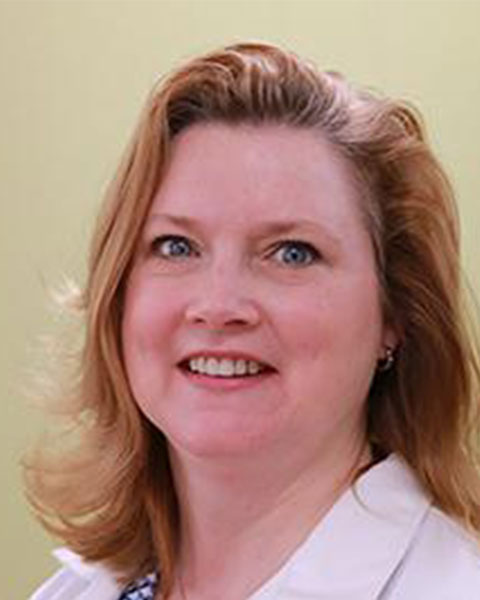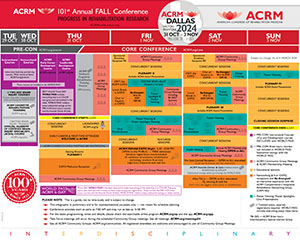
Jeannie Lengenfelder, PhD
Associate Director
Kessler Foundation
OMB No. 0925-0001 and 0925-0002 (Rev. 09/17 Approved Through 03/31/2020)
BIOGRAPHICAL SKETCH
NAME: Lengenfelder, Jean, PhD
eRA COMMONS USER NAME (credential, e.g., agency login): jlengenfelder
POSITION TITLE: Assistant Director, Traumatic Brain Injury Research
EDUCATION/TRAINING
Hofstra University BA 1991 Psychology
Villanova University MS 1993 Experimental Psych
Pacific Graduate School of Psychology MS 1997 Clinical Psych
Pacific Graduate School of Psychology PhD 2000 Clinical Psych
A. Personal Statement
I am the Associate Director of Neuropsychology at Kessler Foundation and Assistant Professor in the Department of Physical Medicine and Rehabilitation at Rutgers/NJ Medical School. My current research examines neuropsychological functioning and rehabilitation following neurological injury or disease, focused on cognition and social cognition in persons with traumatic brain injury (TBI) and multiple sclerosis (MS). I am also interested in emotional processing following a neurological injury or illness in both adults and children. I have been awarded grants from the National Institutes of Health, National Multiple Sclerosis Society, the Consortium of MS Centers, New Jersey Commission for Brain Injury Research and the ARSEP Foundation. I am a member of the American Psychological Association, International Neuropsychological Society and the National Academy of Neuropsychology and was awarded the 2010 Emerging Researcher of Year award by the New Jersey Psychological Association.
I have been a co-investigator on the Northern NJ Traumatic Brain Injury Model System (NNJTBIS) since 2012 and have served as Knowledge Translation Chair since 2009. Numerous KT activities have been initiated and expanded under my leadership. This includes redesign of our consumer newsletter, News & Views in 2010 and again in 2017, the successful execution of 2 consumer conferences per cycle (6 in total), transition of our 2021 Consumer Conference to a virtual platform and conceptualization and execution of a quarterly virtual consumer speaker series, BrainStorm, which will be further developed in the 2022-2027 funding cycle if we are funded. I work very closely with the NNJTBIS Consumer Advisory Board (CAB) and value their perspectives and our relationship. Given our extensive KT activities, we have recently expanded the NNJTBIS KT team to 4 persons, including me. I will continue to lead this newly expanded team in the 2022-2027 funding cycle should our application be successful. Given my decade of experience with TBIMS related KT activities, I am well qualified to fulfill this role and look forward to continuing to move NNJTBIS activities forward.
Projects I would like to highlight include:
Title: Northern NJ Traumatic Brain Injury Model System (NNJTBIS)
Funding Agency: National Institute on Disability, Independent Living and Rehab Research (NIDILRR)
Role: Co-Investigator (Dissemination Chair) Dates: 2017-2022
Title: Northern NJ Traumatic Brain Injury Model System (NNJTBIS)
Funding Agency: National Institute on Disability, Independent Living and Rehab Research (NIDILRR)
Role: Co-Investigator (Dissemination Chair) Dates: 2012-2017
Consumer publications and programming completed under my leadership include:
Newsletter: produced over 20 issues of TBI News & Views; most recent one here TBI Newsletter_Fall 2021_FINAL.pdf (kesslerfoundation.org)
Chair of recent Consumer Conferences: 2017 Moving Forward: Overcoming Obstacles and Improving Quality of Life, 2019 Moving Forward: Improving Emotional, Physical and Cognitive Health after Brain Injury, 2021 Moving Forward: Personal Perspectives on Life after Brain Injury
New Speaker series: Winter Brainstorm: Reclaiming yourself after Brain Injury: Hope for a “new, New” self
B. Positions and Honors
1991-1992 Graduate Research Assistant, Villanova University, Villanova, PA
1992-1993 Facilitator, Main Line Rehabilitation Associates, Inc., Malvern, PA
1992-1993 Facilitator, Alternatives in Community Treatment (ACT), Paoli, PA
1994-1995 Therapist, Gronowski Clinic, Pacific Graduate School of Psychology, Palo Alto, CA
1994-1996 Research Assistant, Pacific Graduate School of Psychology, Palo Alto, CA
1995-1996 Neuropsychology Trainee, Laguna Honda Hospital & Rehabilitation Center, SF, CA
1996-1998 Neuropsychology Extern, Veterans Affairs Medical Clinic, Monterey, CA
1998-1999 Neuropsychology Intern, VA NJ Healthcare System, East Orange, NJ
1999-2000 Neuropsychology Post-Doctoral Fellow, UCSF, Memory Disorders Clinic, SF, CA
2000-2002 Neuropsychology Post-Doctoral Fellow, Kessler Fnd, WO, NJ; UMDNJ Newark, NJ
2002-2003 Clinical Research Associate, Kessler Foundation, West Orange, NJ;
2003-2010 Research Scientist, Kessler Foundation Research Center, West Orange, NJ;
2000-pres Assistant Professor, Dept Physical Medicine & Rehabilitation, UMDNJ Newark, NJ
2010-pres Assistant Director Traumatic Brain Injury Research, Kessler Foundation, WO, NJ
2010 New Jersey Psychological Association, Emerging Researcher Award
2004-2008 NIH Clinical Loan Repayment Award
2001-2002 Chief Fellow- Research, Dept of Physical Med & Rehab, UMDNJ, Newark, NJ
2006- 2014 Member, Research Review Committee, Kessler Found, West Orange, NJ
2006-2010 Member, OSCE Committee, Dept PM & R, UMDNJ, Newark, NJ
C. Contributions to Science
For a complete list of published work, please see
https://www.ncbi.nlm.nih.gov/myncbi/jean.lengenfelder.1/bibliography/public/
I. Changes in cognition in individuals with neurological illness and injury, focused on TBI and Multiple Sclerosis (MS). Cognitive impairments are commonly encountered in individuals with neurological illnesses, such as MS and injury, such as TBI. Impairments in cognition can involve cognitive abilities including memory, executive functioning, attention and processing speed. Understanding the impact of illness and injuries on cognition through neuropsychological assessment has been a longstanding interest of mine first clinically and then through research throughout my career. Understanding changes in cognition is a critical first step in developing effective intervention to improve cognition as well as to be able to predict outcomes, incorporate support systems, identify gaps in our current knowledge and provide information to individuals and their families.
1. Lengenfelder, J., Arjunan, A., et al (2013). Assessing frontal behavioral syndromes and cognitive functions in traumatic brain injury. Applied Neuropsychology-Adult. November, 1-9.
2. Goverover, Y, Genova, H, Smith, A, Chiaravalloti, ND & Lengenfelder, J (2016). Changes in activity participation following traumatic brain injury. Neuropsych Rehabilitation. DOI: 10.1080/09602011.2016.1168746
3. Goverover, Y, Genova, HM, Smith, A, Lengenfelder, J & Chiaravalloti, ND (2020). Changes in Activity Participation After Multiple Sclerosis Diagnosis. Int J MS Care Jan-Feb 2020;22(1):23-30. doi: 10.7224/1537-2073.2018-036.
4. Chiou KS, Genova HM, Lengenfelder J, Chiaravalloti ND. (2020). Postdecisional Processing Delays in Metacognitive Monitoring After Traumatic Brain Injury. J Head Trauma Rehabil 35(2):152-159 (ISSN: 1550-509X)
II. Rehabilitation of cognition in individuals with neurological illness and injury, focused on TBI and Multiple Sclerosis (MS). This area of interest focuses on the rehabilitation of cognitive abilities using primarily neuropsychological techniques to remediate cognitive deficits. Applying strategies to improve cognitive functions in clinical populations has been a focus of mine throughout my career.
1. O’Brien, A., Chiaravalloti, N., Arango-Lasprilla, J. C., Lengenfelder, J., & DeLuca, J. (2007). An investigation of the differential effect of self-generation to improve learning and memory in Multiple Sclerosis and Traumatic Brain Injury. Neuropsychological Rehab, 17 (3), 273-292.
2. Lengenfelder, J., Chiaravalloti, N. D., DeLuca, J. (2007). The efficacy of the generation effect in a traumatically brain injured population. Rehabilitation Psychology, 52, 290-296.
3. Sumowski, J.F., Wood, H.G., Chiaravalloti, N., Wylie, G.R., Lengenfelder, J., DeLuca, J. (2010). Retrieval practice: A simple strategy for improving memory after traumatic brain injury. Journal of the International Neuropsychological Society, 16, 1147-1150.
4. Ford-Johnson L, DeLuca J, Zhang J, Elovic E, Lengenfelder J, Chiaravalloti ND. Cognitive effects of modafinil in patients with multiple sclerosis: A clinical trial. Rehabil Psychol. 2016 Feb;61(1):82-91. doi: 10.1037/a0039919. Epub 2015 Dec 14. PubMed PMID: 26654280.
III. Social Cognition in individuals with neurological illness and injury, focused on TBI and Multiple Sclerosis (MS). Social and emotional difficulties following neurological illnesses or injuries are common and are related to significant problems in social relationships, poor social participation, impaired empathy, and a high degree of caregiver stress. One aspect of social cognition where I have focused my work is on emotional processing in TBI and MS, which can be characterized by an inability to correctly perceive other’s emotions. Emotional processing is a critical component of social cognition, including the abilities to both identify and discriminate basic universal emotions through recognizable facial expressions. The failure to accurately perceive other’s emotions has been shown to lead to difficulty in social relationships, misinterpreting other’s affect, and consequently, inappropriate responding. My work in this area focuses on furthering our understanding of the social cognition deficits evidenced in TBI and MS as well as the application of a treatment to improve emotional processing.
1. Genova HM, Rajagopalan V, Chiaravalloti N, Binder A, DeLuca J, Lengenfelder J. (2015). Facial Affect Recognition Impairments Linked to Neuropathology in Traumatic Brain Injury. Social Neuroscience. Sep 16:1-8.
2. Genova HM, Genualdi A, Goverover Y, Chiaravalloti ND, Marino C, Lengenfelder J. An investigation of the impact of facial affect recognition impairments in moderate to severe TBI on fatigue, depression, and quality of life. Soc Neurosci. 2017 Jun;12(3):303-307. doi: 10.1080/17470919.2016.1173584. Epub 2016 Apr 27. PubMed PMID: 27052026.
3. Binder A, Lancaster K, Lengenfelder J, Chiaravalloti N, & Genova HM. (2019) Community Integration in Traumatic Brain Injury: the Contributing Factor of Affect Recognition Deficits. Journal of International Neuropsychological Society. Sep;25(8):890-895. doi: 10.1017/S1355617719000559. Epub 2019 Jun 10.
4. Lancaster, K., Venkatesan, U.M., Lengenfelder, J, & Genova, H.M (2019). Default mode network connectivity predicts emotion recognition and social integration after traumatic brain injury. Frontiers in Neurology: Neurotrauma. 10:825DOI: 10.3389/fneur.2019.00825
IV. Longitudinal functioning in individuals with TBI. This work is largely driven by my involvement in the TBI Model Systems program since 2009, which has produced collaborative work with other TBI Model System centers on various topics relevant to individuals with traumatic brain injury and longitudinal functioning but also includes work completed at Kessler Foundation.
1. Marwitz, JH, Perera, RA, Klyce, DW, Walker, KA, Bergquist, TF, Neumann, D, Agtarap, SD, Lengenfelder, J, Hammond, FM, Dreer, LW. (in press). Caregiver Resilience following Traumatic Brain Injury: Findings at Six Months Post-Injury. Rehabilitation Psychology
2. Lequerica, A, Botticello, AL, Lengenfelder, J, et al (2018). Factors associated with remission of post-Traumatic Brain Injury fatigue in the years following traumatic brain injury (TBI): A TBI Model Systems Module Study. The Journal of Head Trauma Rehabilitation. PMID 29863616 DOI: 10.1097/HTR.0000000000000398
3. Dams-O’Connor, K, Sy, KT, Landau, A, Bodien, Y, Dikmen, S, Felix, ER, Giacino, JT, Gibbons, L, Hammond, FM, Hart, T, Johnson-Greene, D, Lengenfelder, J, Lequerica, A, Newman, J, Novack, T, O’Neil-Pirozzi, TM, & Whiteneck, G The Feasibility of Telephone-Administered Cognitive Testing in Individuals 1 and 2 Years after Inpatient Rehabilitation for Traumatic Brain Injury. J Neurotrauma. 2018 Mar 13. doi: 10.1089/neu.2017.5347.
4. Juengst, SB, Silva, V, Goldin, Y, Cicerone, K, Lengenfelder, J, Chiaravalloti, N,Driver, S, Mellick, D, Dart, G, Kew, CL, Nabasny, A, & Bell, KR. (2019). Care Partner Problem Solving Training (CP-PST) for Care Partners of Adults with Traumatic Brain Injury during Inpatient Rehabilitation: Study Protocol for a Multisite, Randomized, Single-blind Clinical Feasibility Trial. Contemporary Clinical Trials. PMID 30885800 DOI: 10.1016/j.cct.2019.03.004
5. Weber, E, Spirou, A, Chiaravalloti, N, & Lengenfelder, J (2018). Impact of Frontal Neurobehavioral Symptoms on Employment in Individuals with Chronic Traumatic Brain Injury. Rehabilitation Psychology. PMID 30024202 DOI: 10.1037/rep0000208
V. Pediatric TBI is a more recent interest of mine. I have led and contributed to several externally funded studies examining various aspects of cognition and social cognition in children with TBI. This is collaborative work conducted with Children’s Specialized Hospital (CSH) and several colleagues at both Kessler Foundation and CSH.
1. Genova HM, Haight A, Natsheh JY, DeLuca J, Lengenfelder J. (2019). The Relationship Between Social Communication and Social Functioning in Pediatric TBI: A Pilot Study. Frontiers in Neurology. 10: 850. PMID 31474925 DOI: 10.3389/fneur.2019.00850
2. Lequerica, A, Lengenfelder, J, Genova, H, Shoval, HA, Marchetta, C, Yalamanchi, K, & DeLuca J (2020). Utility Of A Rest-activity Ratio In A Pediatric Brain Injury Rehabilitation Sample: A Pilot Study. Sleep 43(Supplement_1):A374-A374 DOI: 10.1093/sleep/zsaa056.981
Poster(s):
-
Saturday, November 2, 20249:45 AM - 10:00 AM

.jpg)
.jpg)
.jpg)
